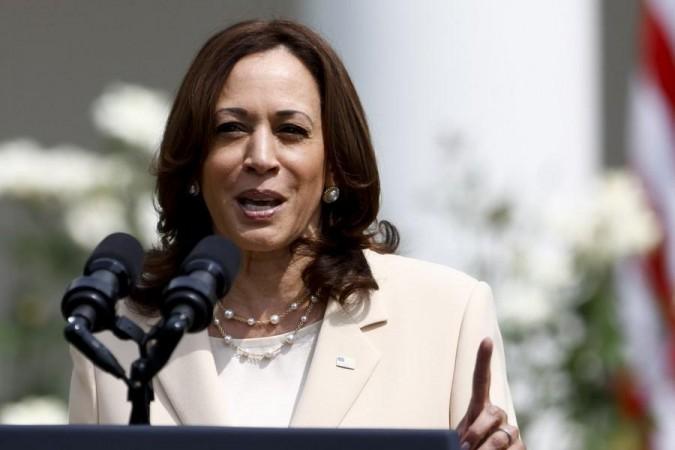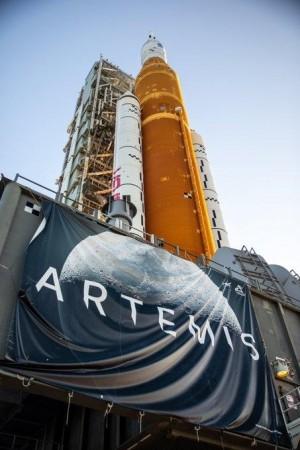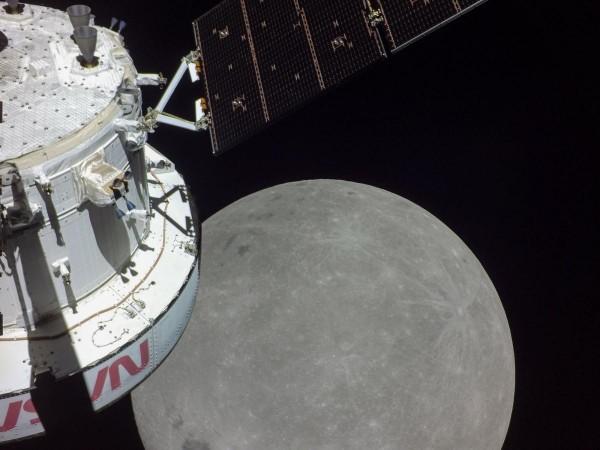
The US will land an international astronaut on the Moon aboard NASA's Artemis mission by the end of the decade, said Vice President Kamala Harris during a meeting of the White House's National Space Council in Washington, DC.
"Alongside American astronauts, we intend to land an international astronaut on the surface of the Moon by the end of the decade," Harris said at the meeting held on Wednesday.
Harris said that it is in recognition of the essential role that allies like Europe, Japan and Canada played in the Artemis programme. However, it remains unclear which country that astronaut will represent. Meanwhile, NASA has committed to train an Indian astronaut to fly to the International Space Station in 2024.
With NASA's Artemis mission, the US aims to return humans to the moon, and maintain US leadership in space exploration and prepare for future missions to Mars by 2025. Artemis III will also land the first woman and the first person of colour on the Moon, paving the way for a long-term, sustainable presence and serving as a gateway for future astronaut missions to Mars.

"The Artemis programme is the most ambitious space exploration effort in generations. For the first time in more than half a century, the United States will return astronauts to the lunar surface. We will establish the first lunar base camp and the first station in lunar orbit -- all of this in collaboration with our allies and partners," Harris said.
To achieve Artemis' goals, NASA made both commercial and international partnerships with European Space Agency (ESA), Japan Aerospace Exploration Agency (JAXA), and Canada Space Agency, who will also make significant contributions to the lunar space station.
"NASA has committed to three opportunities for European Space Agency astronauts to fly to Gateway, one opportunity to fly a Canadian Space Agency astronaut to Gateway and one opportunity on Artemis II, and one opportunity for a Japanese (JAXA) astronaut to fly to Gateway," a NASA official was quoted as saying to CNN.
"Beyond Artemis II, these crew opportunities have not been designated to specific Artemis missions."
In 2022, Artemis 1 sent an uncrewed Orion to lunar orbit and back late last year.
Artemis 2 is slated to send four astronauts -- three from NASA and one from CSA -- around the moon in late 2024 or 2025.

Artemis 3, which will put astronauts down near the lunar south pole for the first time since 1972, is targeted for 2025. However, a recent report by the US Government Accountability Office (GAO), identified several gaps in the mission's human landing system and spacesuit design, among others, which will not be complete before 2027.
The delay is also likely to push back subsequent Artemis missions, with Artemis 4 currently planned for 2028, followed by Artemis 5 through 7 expected to transpire annually starting in 2029.
(With inputs from IANS)









!['Had denied Housefull franchise as they wanted me to wear a bikini': Tia Bajpai on turning down bold scripts [Exclusive]](https://data1.ibtimes.co.in/en/full/806605/had-denied-housefull-franchise-they-wanted-me-wear-bikini-tia-bajpai-turning-down-bold.png?w=220&h=138)



